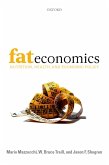The Oxford Handbook of Health Economics provides an accessible and authoritative guide to health economics, intended for scholars and students in the field, as well as those in adjacent disciplines including health policy and clinical medicine. The chapters stress the direct impact of health economics reasoning on policy and practice, offering readers an introduction to the potential reach of the discipline. Contributions come from internationally-recognized leaders in health economics and reflect the worldwide reach of the discipline. Authoritative, but non-technical, the chapters place great emphasis on the connections between theory and policy-making, and develop the contributions of health economics to problems arising in a variety of institutional contexts, from primary care to the operations of health insurers. The volume addresses policy concerns relevant to health systems in both developed and developing countries. It takes a broad perspective, with relevance to systems with single or multi-payer health insurance arrangements, and to those relying predominantly on user charges; contributions are also included that focus both on medical care and on non-medical factors that affect health. Each chapter provides a succinct summary of the current state of economic thinking in a given area, as well as the author's unique perspective on issues that remain open to debate. The volume presents a view of health economics as a vibrant and continually advancing field, highlighting ongoing challenges and pointing to new directions for further progress.
Dieser Download kann aus rechtlichen Gründen nur mit Rechnungsadresse in A, B, BG, CY, CZ, D, DK, EW, E, FIN, F, GR, HR, H, IRL, I, LT, L, LR, M, NL, PL, P, R, S, SLO, SK ausgeliefert werden.









